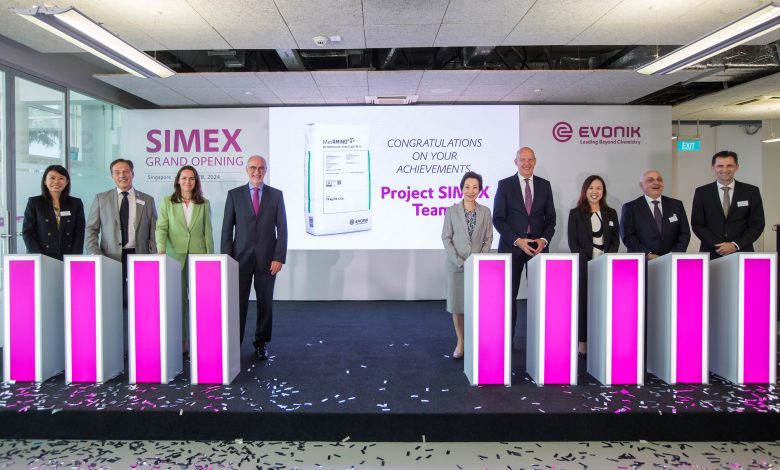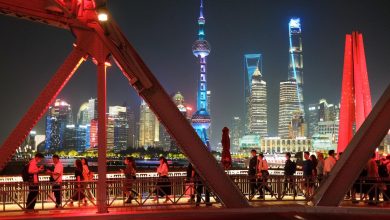Evonik expands animal-feed protein production with new plant

GERMAN chemicals giant Evonik on Wednesday (Aug 28) opened a new methionine plant at its Jurong Island facility, adding 40,000 tonnes to its total production capacity.
This brings the facility’s total production capacity of methionine to 340,000 tonnes per year, said Evonik in a statement. Methionine is a protein component used in animal feed supplements.
The new factory will be Evonik’s third methionine plant opened in the last decade. The first one opened in 2014, and the second in 2019. All three are part of the same complex on Jurong Island.
For the new plant expansion, the German-based company made a “mid-double-digit-million-euro” investment, executive board chairman Christian Kullmann told The Business Times in an interview last year.
The addition makes Evonik’s Singapore facility the largest methionine facility in the world, with a market share of more than 40 per cent.
It represents nearly half of the company’s total methionine production capacity, which currently stands at 700,000 tonnes a year, said deputy chairman Harald Schwager at the opening ceremony.
BT in your inbox

Start and end each day with the latest news stories and analyses delivered straight to your inbox.
Since entering Singapore in 1969, Evonik has invested more than one billion euros (S$1.5 billion) into the city-state. This clearly underlines how important Singapore, and Jurong Island, is for Evonik, noted Schwager.
“Singapore is important for us to remain competitive in the global market,” he added. “It is our gateway to extend our business in Asia.”
Evonik has also “long recognised the potential of the region”, said Asia-Pacific president Claus Rettig. This is why the company has “diligently expanded (its) presence here over the years”.
In the last two years, Evonik has made partnerships and opened new facilities in China, India and Japan, to name a few.
In Singapore, Evonik is also building a new biodiesel catalyst production plant that will sit adjacent to the methionine facility in Jurong Island. When opened, this will be the biggest of its kind in the world, noted Rettig.
“I think this shows we are trying to cover the entire region and use the strengths of the different countries,” he added.
Pursuing sustainability and growth
The opening of the new plant not only marks a new milestone for Evonik, but also signals the start of “the next bound of growth for Singapore’s energy and chemicals industry”, said Minister for Sustainability and the Environment Grace Fu, who was also present at the opening ceremony on Wednesday afternoon.
Singapore has evolved from being an oil storage and distribution hub, to an “attractive global destination for speciality and sustainable chemicals”, she noted.
This, in large part, is due to the increasing demand for consumer and green products. For one, Asia’s growing population has driven the rise of meat consumption, which in turn has driven the demand for chemicals such as methionine.
Concurrently, the demand for green chemicals is also rising, pointed out the minister, buoyed by government policies on the use of sustainable materials and consumers choosing sustainable products.
Singapore thus wants to ride these trends, by seizing growth opportunities in speciality and sustainable chemicals, said Fu, who singled out “fast-growing” markets such as nutrition and agriculture, care chemicals, pharmaceuticals and mobility.
Even as Singapore seeks to pivot the industry towards growth areas, chemicals companies themselves must also grow sustainably, noted Fu in her speech.
The Sustainable Jurong Island strategy was thus launched in 2021 to catalyse this transition, she said.
By 2030, Singapore aims to increase the output of sustainable products in the energy and chemicals sector by 1.5 times from 2019 levels. It also wants to achieve at least two million tonnes of carbon abatement per annum through low-carbon solutions.
The new plant has helped Evonik with its sustainability goals. The three methionine plants have reduced the product carbon footprint of the animal protein ingredient by 6 per cent, when compared with before the expansion.
Lim Wey-Len, executive vice-president of the Singapore Economic Development Board, said that the latest expansion is a “welcomed push towards energy-efficient production that will reduce (Evonik’s) overall carbon footprint while increasing competitiveness”.
“This adds to a growing number of companies that are partnering Singapore on our decarbonisation efforts,” he added.
Singapore, which houses an innovation hub for Evonik, also serves as the company’s headquarters for South Asia-Pacific.
In the interview last year, Kullmann, who is also Evonik’s chief executive officer, said the company has targeted for Asia-Pacfic’s share of revenues to grow to 30 per cent of sales by 2030, up from 20 per cent then.
He also identified Singapore as a hub for Evonik’s sustainability projects and “profitable green growth” in Apac.





